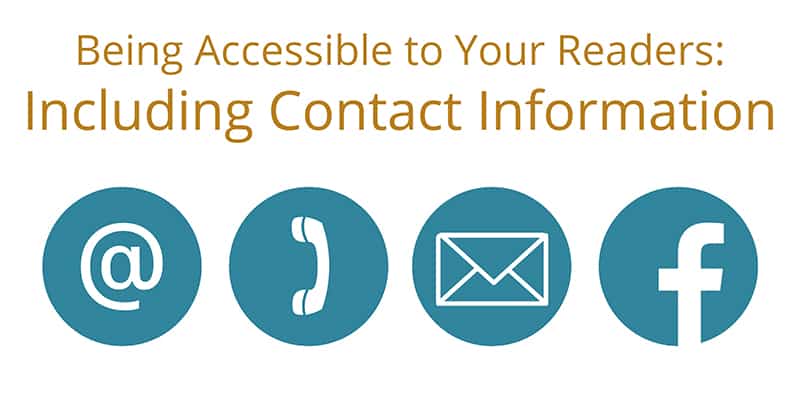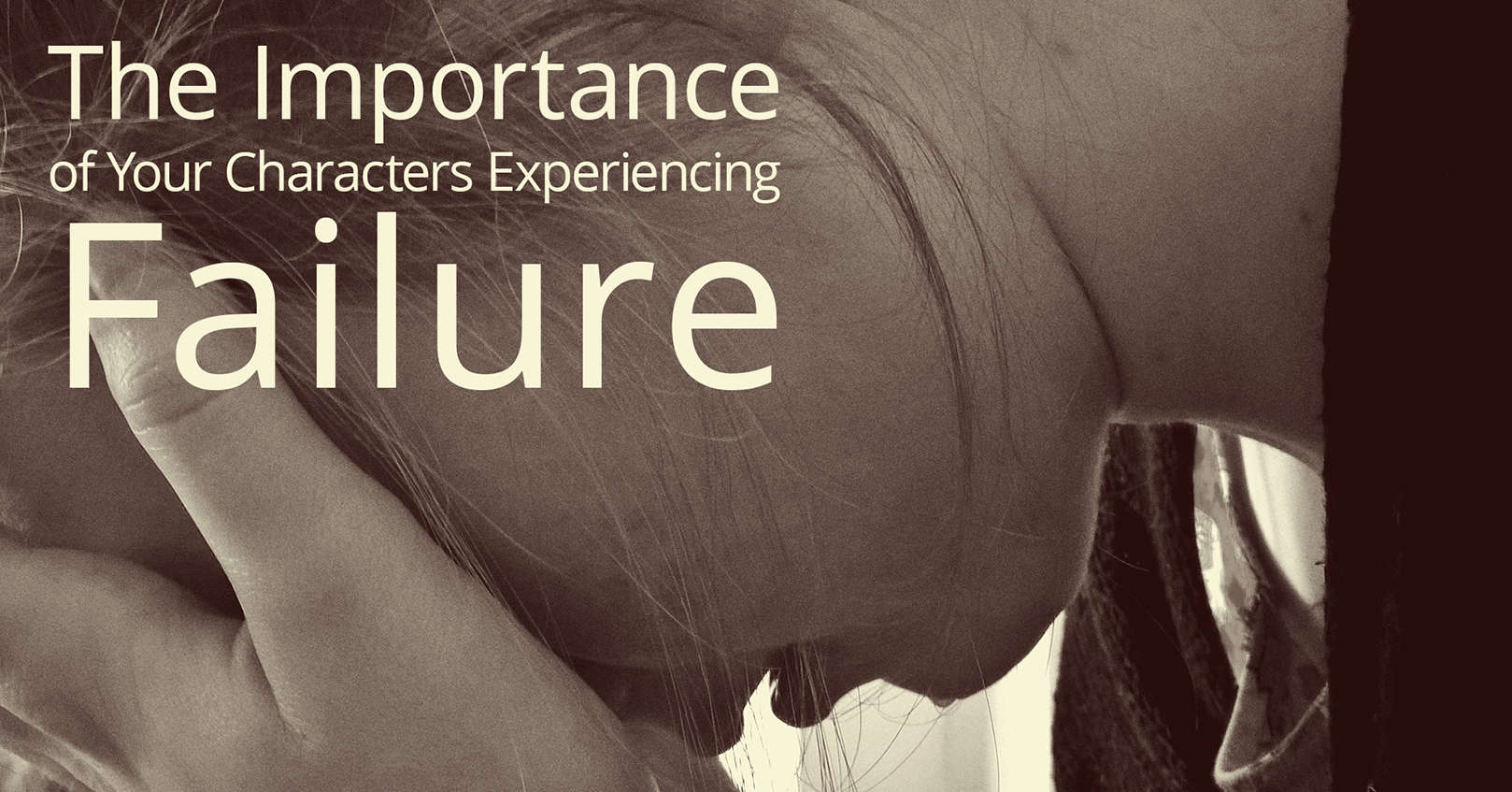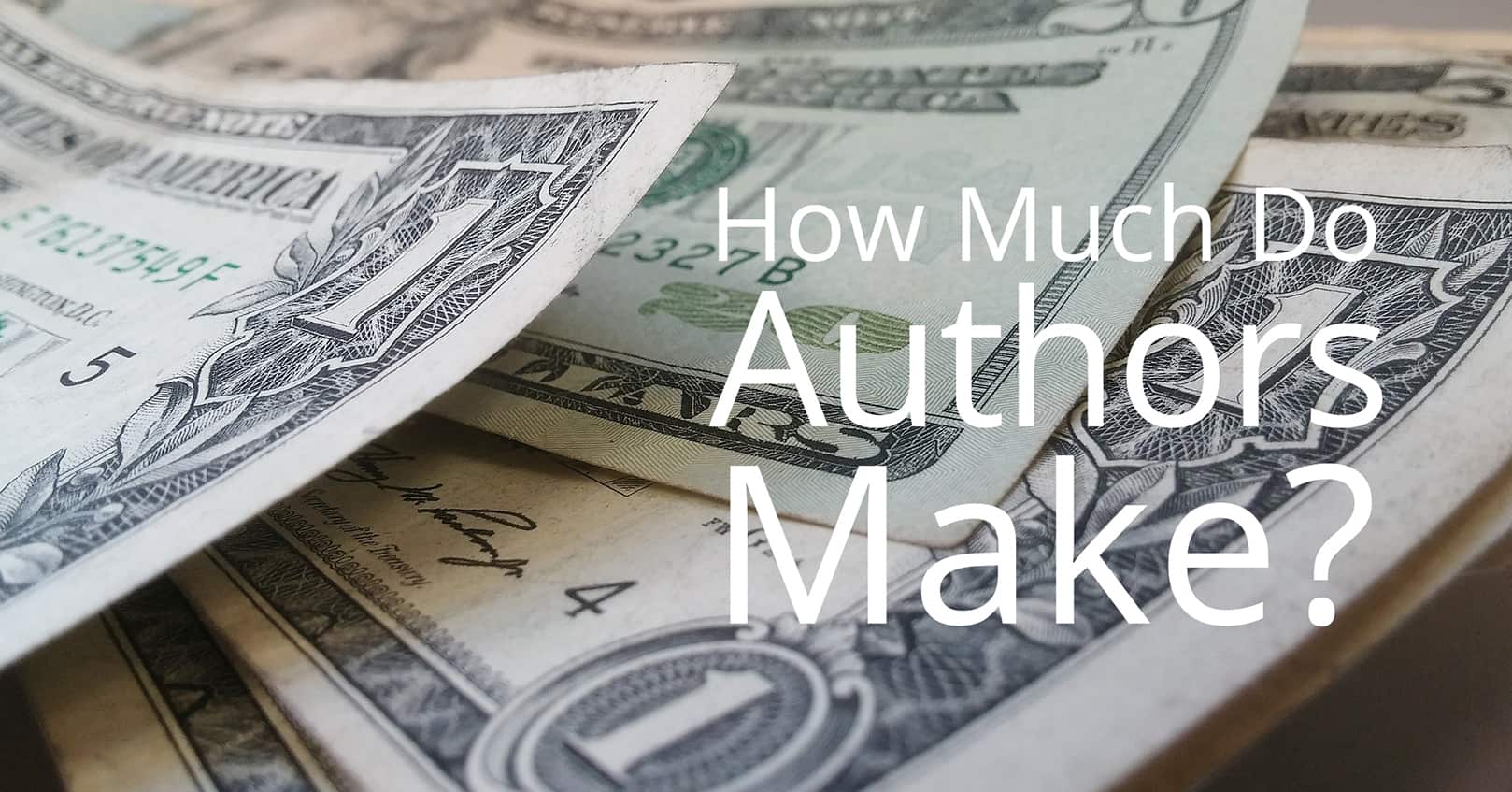
Being accessible to readers means including contact information so that readers, journalists, and promoters have easy ways to get in touch with you. These people are interested in more than just your books—they’re interested in you! Let’s take a look at reasons why you should be accessible and ways you can do so.
Why be accessible?
- Readers want to contact you to ask questions or to tell about experiences they’ve had with your books, and if you don’t have any contact information on your website, they may feel you don’t care about their feedback.
- Leaving off this information makes you look unprofessional or forgetful.
- Readers may want to contact you directly to buy your books in bulk for an event, but without a way to contact you, they can’t do that, and you’ll lose out on sales.
- Journalist who may be interested in featuring you will need to be able to contact you. If they can’t find that contact information, you’ll miss out on the publicity.
- Promoters or conference/event organizers are unable to contact you, and you miss out on a promotion opportunity. They aren’t going to waste time tracking you down when a similar author makes it easy.
How to be accessible and what contact information to include
So how can you be accessible? Here are some great ways:
- Include social media icons on your website, especially Facebook and Twitter. Use a handle that contains your name. If an author is called Sarah Truman, it’s easier to tag her using @sarahtruman than using @sartru234.
- Include an easy-to-use contact me page on your website.
- Include an email address on your website. This email should not be your personal email, but an email you have created specifically as an author email. If readers or promoters have an actual email rather than a contact form, they are more likely to contact you because they can write the email down and contact you later. You will get spam, but one way to avoid bots spamming you is to write out the words “dot” or “at” in your email. For example, “team (AT) mybookcave (DOT) com.”
- Include your email, social media links, and website link on all the pages about you. Absolutely everywhere that talks about you as an author should also have your contact information. This includes, but is not limited to, your Amazon author page, your Goodreads author page, your Facebook author page, and your Twitter page. In these instances, you really need an email that you can post on all these pages. Readers, journalists, and promoters are unlikely to go digging for long to find your contact information, so make it easy for them! If it seems overwhelming to include every social media outlet, at least start with two!
- Include links to your social media pages in your email signature.
- Include your email, your social media links, and your website link in the back of each of your books. This is also a great place to ask readers to sign up for your newsletter.
We hope this information on including contact information helps you in your marketing strategy and results in more sales! If you have any additional ideas, we’d love to hear them in the comments below.















Comments